Parliament is now in recess, returning on Tuesday 20 February. There won’t be a policy update next week. We’ll bring you all the latest news on Thursday 22 February.
Technical v higher education
Robert Halfon MP, Chair of the Commons Education Committee gave the keynote speech at the Centre for Social Justice this week and called for an end to the UK’s obsession with academic degrees and demanded a dramatic increase in the delivery of basic skills and technical training by the Further and Higher Education sectors. Robert argued that rebalancing FE and HE were crucial to delivering social justice and eradicating skills gaps. He saw degree apprenticeships which blend technical and academic education as the jewel in the crown of a revamped FE/HE sector.
- “We have become obsessed with full academic degrees in this country. We are creating a higher education system that overwhelmingly favours academic degrees, while intermediate and higher technical offerings are comparatively tiny. The labour market does not need an ever-growing supply of academic degrees. Between a fifth and a third of our graduates take non-graduate jobs. The graduate premium varies wildly according to subject and institution. For many, the returns are paltry.”
He proposed the following:
- Fine-tuning the Apprenticeship Levy to help disadvantaged apprentices with a smaller contribution taper for employers employing disadvantaged apprentices addressing skills shortages.
- Cutting grants to universities unless they offer degree apprenticeships. Ring-fencing a significant portion of the enormous public subsidy of universities so that it can only be accessed if the university offers degree apprenticeships.
- Challenging the Russell Group’s reputation where they don’t deliver value for money. Particularly the sometimes undeserved reputation of Russell Group Universities where they rank highly because of their research (rather than employability skills, quality teaching, and value for money for undergraduate students).
- Protecting and ring-fencing funding of flexible, online and part-time Higher Education by ring-fencing the Part-time Premium element of the Higher Education Funding Council’s Widening Participation funding allocation.
- Closer integration of the FE and HE sectors on delivering higher level apprenticeships and offering flexible and local options for those who need it.
Halfon’s comments around the ‘enormous public subsidy’ and cutting grants are interesting. It’s unclear if he includes student fees within his public subsidy comment or if he is aware that the HEFCE funding elements are a mere drop in the ocean for most universities. For example, at BU the full HEFCE contribution for teaching, WP elements, and research was less than £11 million in 16/17. Nationally in 2017/18 across all universities HEFCE provided a total funding allocation of £1,320 million for teaching purposes. Halfon’s speech was covered in the Express.
International students
Parliamentary questions
Q – Robert Neill: To ask the Secretary of State for the Home Department, what plans her Department has to further expand the student visa pilot scheme [AND] what criteria universities were required to fulfil in order to take part in that pilot [AND] how many representations the Department has received from universities wanting to take part in the expanded student visa pilot scheme
A – Caroline Nokes:
- The Tier 4 visa pilot, helps to streamline the visa process for international students looking to study on a Masters’ course, in the UK, of 13 months or less. The pilot also helps to support students who wish to switch into a work route and take up a graduate role, by extending the leave period following the end of their study to up to six months.
- 23 additional institutions were selected to participate based on having the consistently lowest visa refusal rates for their region or country. The evaluation of the pilot is ongoing, with an interim report due to be published in the summer of 2018. The primary focus of the evaluation is to assess the impact of the Tier 4 visa pilot on UK education institutions’ competitiveness in terms of attracting international students and the ability of international students to switch into a work route. Engaging more sponsors to participate in the pilot will provide additional evidence for the evaluation to ensure it more accurately represents the diversity of the sector. Once evaluated, we will consider whether to introduce the offer being tested with the pilot into the Immigration Rules and make it policy.
- We regularly engage with the education sector on student migration policy, including the Tier 4 visa pilot. We hold a quarterly Education Sector Forum with key representatives from the sector including the devolved administrations.
Q – Catherine West: To ask the Secretary of State for International Trade, what steps his Department is taking to support UK higher education exports.
A – Graham Stuart:
- The Department for International Trade supports the international aspirations of the Higher Education sector through its Education team in a range of ways, including Government to Government engagement and support to Trade Missions. The team has recently helped, amongst others, the University of Birmingham in its plan to open a campus in Dubai. The UK Higher Education sector will also be a focus in the GREAT Festival of Innovation, to be held in Hong Kong in March.
- The recently formed DIT Education Sector Advisory Group brings together relevant sector partners, including Universities UK and Independent Higher Education, to co-ordinate efforts to boost education exports.
HE funding review
Parliamentary question – Q – Layla Moran: To ask the Secretary of State for Education, what the reasons are for a review of funding across tertiary education that focuses on post-18 education rather than post-16 education.
A – Mr Sam Gyimah:
- The internationally recognised understanding of the term tertiary education, in line with the International Standard Classification of Education, corresponds to English qualification levels 4 and above, which are typically taken by those aged 18 and over.
- The government will conduct a major review of funding across tertiary education to ensure a joined-up system that works for everyone. As outlined in the Industrial Strategy, the review will consider a range of specific issues within post-18 education.
- The government is already fundamentally reforming the post-16 education system to give all young people the opportunity to fulfil their potential and deliver a better future for our country. A key principle of the reform agenda is to improve the quality of technical education provision to deliver young people with the skills employers need both locally and nationally. New T-levels, with content designed by employers, will support them into skilled employment or progression to higher education. T-levels will be backed by over £500 million annually by the time the programme is rolled out fully, and we are implementing apprenticeship reforms to continue to improve the quality of apprenticeships for all. Our commitment to the 16 to 19 sector has contributed to the current record high proportion of 16 to 18 year olds who are participating in education or apprenticeships.
- The government will set out further details on the review shortly.
The Lords Economic Affairs Committed continued their investigation this week. Overall there was quite a focus on FE. The witnesses were questioned on issues relating to disparities in the treatment of Higher Education (HE) and Further Education (FE), including funding and perception. The funding gap between FE and HE was discussed with FE as the poor relative, although it was noted that FE state funding provides more stability than HE sources. When questioned on how to reduce the disparity between FE and HE a witness expressed that there would have to be control on HE expansion. Some way of redistributing funding would have to be found however both private and public sectors would also have to change their attitudes towards recruitment.
Poor schooling was discussed and a witness highlighted how technical studies and ‘catch-up’ education can be conflated. Later witnesses described how schools were almost entirely incentivised to send people to university and how in some parts of the country young people who went to colleges were seen as failures.
On apprenticeships Lord Tugendhat (Conservative) asked how the quality and quantity of apprenticeships could be improved. Witness, Gravatt, stated there was a danger that the apprenticeship target and its levy would mean people may lost sight of what apprenticeships were for. Government and colleges needed to work with the system as it was and make sure colleges and employers were not using them in a short-term manner.
Lord Turnbull (Crossbench) questioned how FE and apprenticeships could be portrayed in a more positive light. Witness Milner stated FE needed to brand itself in the light of bridges to opportunity. She said the focus on the value of a university education had diminished the perception of HE. Witness Husband stated lots of employers were using apprenticeships as a way of widening participation.
Degree apprenticeships – Lord Burns noted Treasury announcements of a proposed four-year degree-level apprenticeship program, which he said did not appear to be what apprenticeships were about. In response, Husband said the core of an apprenticeship was to have a job where they gained knowledge and skills to become competent. She said there were skills gaps at Level 4 and above, and such apprenticeships were meeting the needs of employers.
Mature students – Lord Darling asked how responsive the FE sector had been to those who lost their jobs or needed skills training later in life. Witness Francis said the main problem was that those people were not eligible for funding provision in colleges. Witness Atkins said funding for adults was now simpler from the supply side, but from the demand side rules for eligibility were very complex and required a learner to have additional funding.
In the later session it was noted how maintenance loans are not provided for all FE students as in HE. Instead FE colleges are expected to provide discretionary support.
T-levels: Lord Burns (Crossbench) queried T-Levels and Institutes of Technology. Witness, Gravatt, said they were a good opportunity but were still at an early stage. He said he had concerns they had been ‘done on the cheap’ and that unrealistic expectations had been put on them.
Tertiary Education Review – no new news: Mucklow stated he could not provide further details than what had already been set out in the industrial strategy. He said the review was likely to be announced soon. He said the Government was beginning to recognise there was a gap in provision. A cohesive all-tertiary funding system was questioned. Witness Eileen Milner recalled that 30 years ago some parts of FE and HE were funded in the same place but she didn’t feel this was a joined-up system from the perspective of FE. No real answers were given to the question of a combined system.
FE Week covered the evidence session and noted the FE Commissioner’s statement that Funding for Institutes of Technology is too modest.
Widening Participation
The OU called for the OfS to lead the way in improving the chances of people from disadvantaged backgrounds going to university. They set out five steps to reverse the student number decline in some disadvantaged groups attending university.
The five point plan calls for:
- National targets for access, participation and student outcomes, supported by regulation and funding decisions. To promote fairness for all, targets should include students of all ages and take in other factors such as ethnicity and disability.
- Collaboration between universities to ensure that the UK Government’s social justice objectives are met, encouraging the sector to work together to improve success rates among the most disadvantaged groups.
- Funding and results to be aligned so that students who need the most support are offered it and that fewer are put off by the thought of high fees and debt.
- Informed choice for students offered through a single portal that gives them comprehensive advice, guidance and information covering all their options for a higher education.
- Flexibility for students to be able, if they wish, to pick and mix courses, take study breaks, transfer between universities or learn in bite-sized chunks.
OU Vice-Chancellor Peter Horrocks calls on universities to work together to improve the success rates of students from disadvantaged areas.
Parliamentary question – Q – David Evennett: To ask the Secretary of State for Education, what steps his Department is taking to close the attainment gap between boys and girls.
A – Nadhim Zahawi:
- This government is determined that all children and young people, regardless of their gender or background, have the opportunity to go as far as their talents and hard work will take them. Rather than implementing policies that focus specifically on the educational performance of boys, the government has introduced far-reaching education reforms that set the highest expectations for what all pupils will achieve. The department has put in place a stretching national curriculum and world-class qualifications, so that more pupils study to age 16 those academic subjects that most enable progress to higher education.
- The latest statistics show that between 2016 and 2017, the proportion of boys achieving the expected standard in GCSE English and maths rose by 1.2 percentage points (to 60.3%), compared to a 0.5 percentage point increase amongst girls (to 67.6%).
Q – Baroness Hussein-Ece: To ask Her Majesty’s Government what plans they have to address the findings of the University Partnerships Programme Foundation and Social Market Foundation report “On course for success”. Student retention at university with particular reference to the conclusion that students from ethnic minority and disadvantaged backgrounds are more likely to drop out.
A – Viscount Younger of Leckie:
- The government is committed to ensuring that everyone with the potential has the opportunity to benefit from higher education (HE), irrespective of their background. Entry rates to full-time HE for 18 year olds from all ethnic groups increased in 2017, reaching the highest recorded numbers.
- There is, however, more to do to ensure that students, including disadvantaged and black and minority ethnic students, are supported both to access higher education and also to participate and succeed. That is why we have taken a number of actions on this.
- From April 2018, Access Agreements will be extended and become Access and Participation Plans. This recognises the importance of HE providers supporting both access and participation, including non-continuation and non-completion of courses, and student success for disadvantaged groups. Additionally, the Teaching Excellence and Student Outcomes Framework will use non-continuation rates as a core metric when ascribing Gold, Silver or Bronze status to individual universities. This can be found at: https://www.gov.uk/government/publications/teaching-excellence-and-student-outcomes-framework-specification. Furthermore, the new Transparency Condition created by the Higher Education and Research Act will require many HE providers to publish their completion rates broken down by gender, ethnicity and socio-economic background. Making this data public will expose those providers who are underperforming in this area.
- The new regulator for HE, the Office for Students, will also have a statutory duty to have regard to the need to promote equality of opportunity in relation to the whole student lifecycle for disadvantaged and traditionally under-represented groups, not just access.
Employability
UUK is partnering with the Confederation of British Industry (CBI) to consider whether HE can introduce more flexible methods of learning to meet the changing needs of students and employers with a weather eye on the part time student number decline. Part time students have dropped by a third since 2012 and the UUK project will consider which sectors have been most affected by the part time decline and which have the greatest future need of high level skills. The project will identify the main issues and develop policy recommendations that will feed into the government’s planned review of university funding and student finance in England.
Neil Carberry, MD of CBI, stated:
- “Speak to any business and before long the conversation turns to skills challenges. With the world of work changing, developing additional and alternative routes to higher skills will matter more than ever. That is why the decline in part-time students is so alarming…for many prospective students, other commitments, such as work or caring responsibilities, mean that being able to have a flexible approach to studying is essential and university provision will increasingly need to be tailored to meet people’s needs.”
Julie Lydon (VC, University of South Wales) writes a blog post on disappearing part-time and mature students for UUK.
UKRI
The House of Commons Science and Technology Committee have ratified Sir John Kingman’s chairmanship. You can read the full report here. Here’s the relevant excerpt:
- “We were fully satisfied that Sir John Kingman is a suitable candidate to be Chair of UKRI. We are pleased to recommend that the Science minister proceeds with the appointment. We wish Sir John well as he transitions from interim chair to permanent chair, and we look forward to working with him in the future.”
Freedom of Speech
On Saturday the Conservative party called for the public to support free speech after disruption at a university event: “Last night, Momentum-supporting thugs broke into a university event and tried to silence Conservatives. Wearing balaclavas, they tried through violence and intimidation to stop the ideas that they disagreed with from being heard. Help us back free speech by signing our petition today. Momentum, the left-wing campaign group, was set up after Mr Corbyn’s initial victory as Labour leader to keep the spirit and politics of his campaign alive. Young people have a right to hear all sides of the political debate. So we’ll protect free speech by stepping up our speaker programme – making sure Conservative voices are heard in universities across the country.”
The Independent and iNews have coverage.
On Wednesday the Human Rights Committee reconvened to continue their discussion of freedom of speech in universities. The witnesses giving evidence were Ben Wallace MP (Minister of State for Security and Economic Crime), Sam Gyimah MP (Minister of State for Universities, Science, Research and Innovation), Jacob Rees-Mogg MP and four representatives from the University of the West England, Bristol. At the time of writing we haven’t seen the transcript, but it will be tweeted by the Human Rights Committee, and you can get a flavour of the debate from their twitter feed (@HumanRightsCttee).
And Wonkhe notes the Prime Minister slipped the free speech campaign into her attendance commemorating the 100th anniversary of women’s votes. She said:
- “In our universities, which should be bastions of free thought and expression, we have seen the efforts of politicians and academics to engage in open debate frustrated by an aggressive and intolerant minority”.
Admissions high
Last week’s UCAS news continues to be discussed. Key points:
- Application rates from English 18 year olds have reached a record high, increasing by 0.4 percentage points to 37.4 per cent. The picture varied in the devolved nations, however, across the UK as a whole, 18 year olds are more likely than ever before to apply to higher education by the January deadline, 1 per cent more likely than in 2017.
- However, the overall application rate shows a 0.9 per cent reduction in the total number of people applying to higher education, to 559,000, compared to the same figure in 2017. This figure reflects a 2.5 per cent fall in the 18 year old population in the UK, and falling demand from 19 year olds and the 25+ age groups.
- The differences in application rates between 18 year old men and women in 2018 remain high across the UK, with young women more likely to apply than young men. In England, young women are 36 per cent more likely than young men to apply to higher education, a small increase from last year.
- The number of applicants from the EU increased by 3.4 per cent to 43,510, and the number of international applicants increased to its highest ever number, by 11 per cent to 58,450.
- Applications from all age groups to nursing courses in England has fallen by 13%. UCAS started reporting on these figures following a switch from NHS bursaries to tuition fees for nursing subjects at English universities and colleges in 2017.
Consultations
Click here to view the updated consultation tracker. Email us on policy@bournemouth.ac.uk if you’d like to contribute to any of the current consultations.
Other news
- OfS Student Panel: Nicola Dandridge (CE of OfS) blogs for Wonkhe on how the OfS student panel is taking shape
- Trust and accountability: Wonkhe also have two guest bloggers who explore the current political inter-relation of the erosion of public trust in HE and the changing landscape of public accountability requirements.
- Student mobility: UUK International have joined forces with the UPP Foundation on a student mobility project – details here
- Student mental health training: The Student Minds (16/17) annual report details delivery of training sessions on student mental health to 1,248 students, supervisors and staff across the sector.
Subscribe!
To subscribe to the weekly policy update simply email policy@bournemouth.ac.uk
JANE FORSTER | SARAH CARTER
Policy Advisor Policy & Public Affairs Officer
Follow: @PolicyBU on Twitter | policy@bournemouth.ac.uk
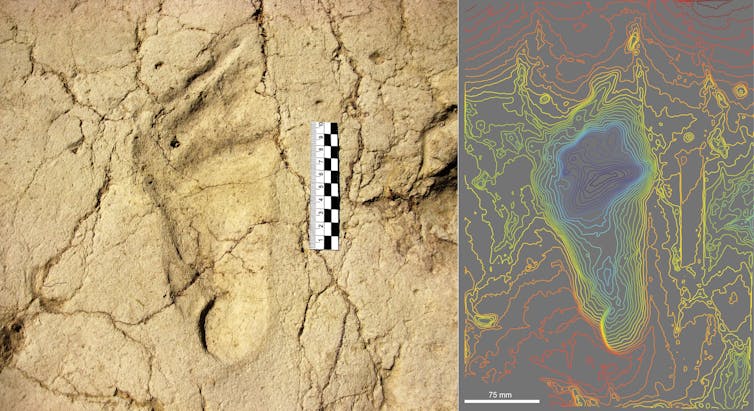
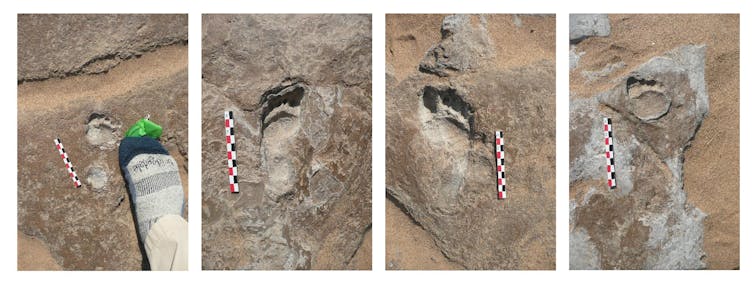

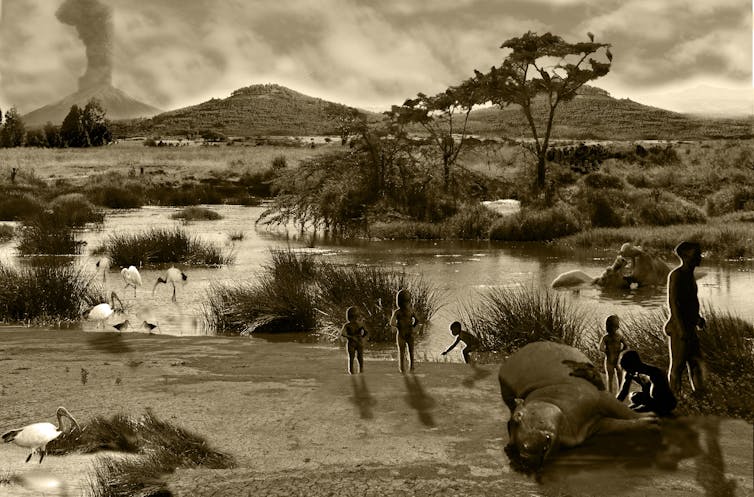

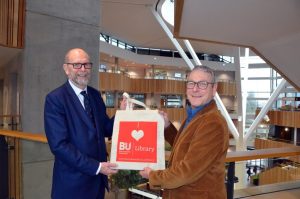
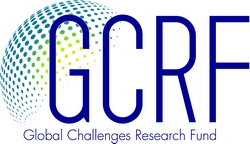 Today marks the launch of an internal competition to allocate BU’s
Today marks the launch of an internal competition to allocate BU’s  LAST DAY TO APPLY FOR MEMBERSHIP!
LAST DAY TO APPLY FOR MEMBERSHIP! Please read through the
Please read through the 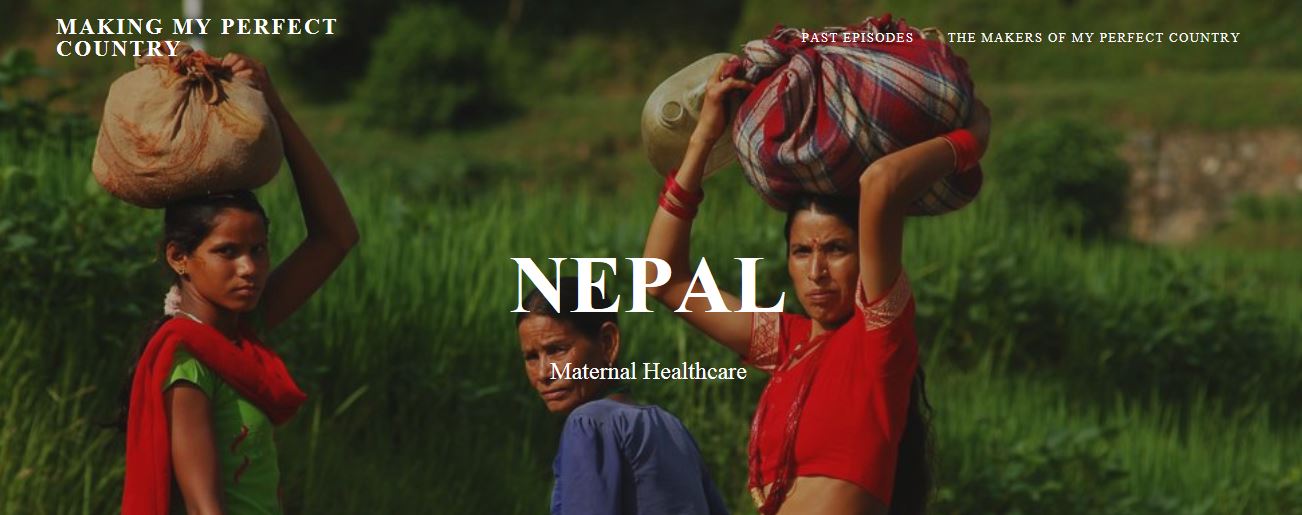


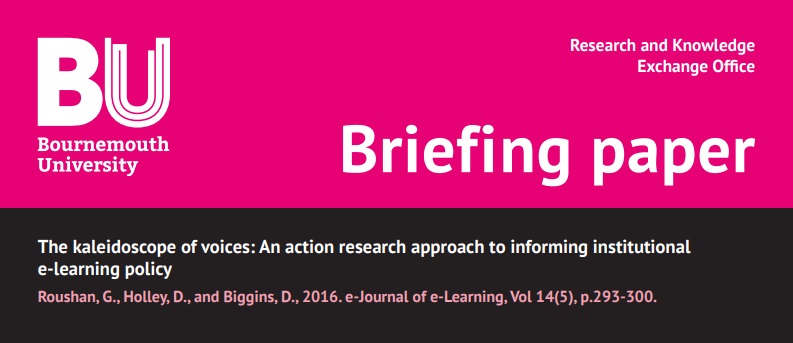 Our
Our 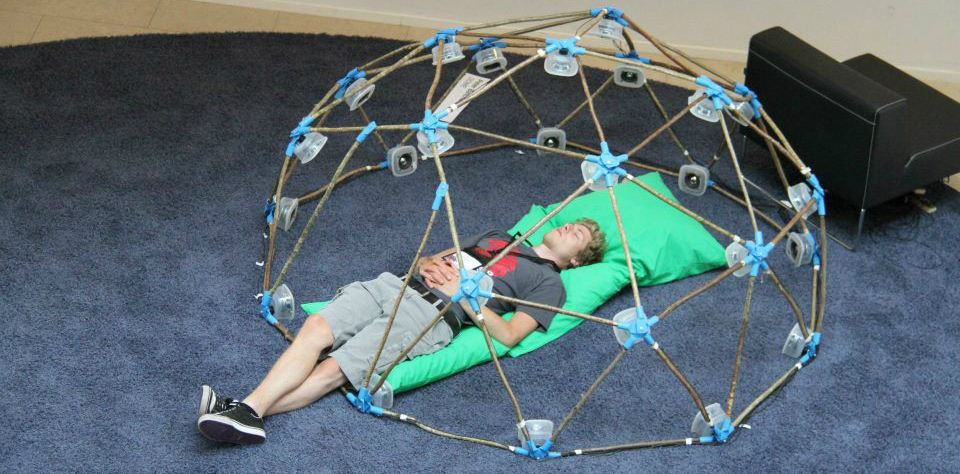











 Visiting Prof. Sujan Marahatta presenting at BU
Visiting Prof. Sujan Marahatta presenting at BU 3C Event: Research Culture, Community & Can you Guess Who? Friday 20 March 1-2pm
3C Event: Research Culture, Community & Can you Guess Who? Friday 20 March 1-2pm Beyond Academia: Exploring Career Options for Early Career Researchers – Online Workshop
Beyond Academia: Exploring Career Options for Early Career Researchers – Online Workshop UKCGE Recognised Research Supervision Programme: Deadline Approaching
UKCGE Recognised Research Supervision Programme: Deadline Approaching SPROUT: From Sustainable Research to Sustainable Research Lives
SPROUT: From Sustainable Research to Sustainable Research Lives ECR Funding Open Call: Research Culture & Community Grant – Apply now
ECR Funding Open Call: Research Culture & Community Grant – Apply now ECR Funding Open Call: Research Culture & Community Grant – Application Deadline Friday 12 December
ECR Funding Open Call: Research Culture & Community Grant – Application Deadline Friday 12 December MSCA Postdoctoral Fellowships 2025 Call
MSCA Postdoctoral Fellowships 2025 Call ERC Advanced Grant 2025 Webinar
ERC Advanced Grant 2025 Webinar Update on UKRO services
Update on UKRO services European research project exploring use of ‘virtual twins’ to better manage metabolic associated fatty liver disease
European research project exploring use of ‘virtual twins’ to better manage metabolic associated fatty liver disease